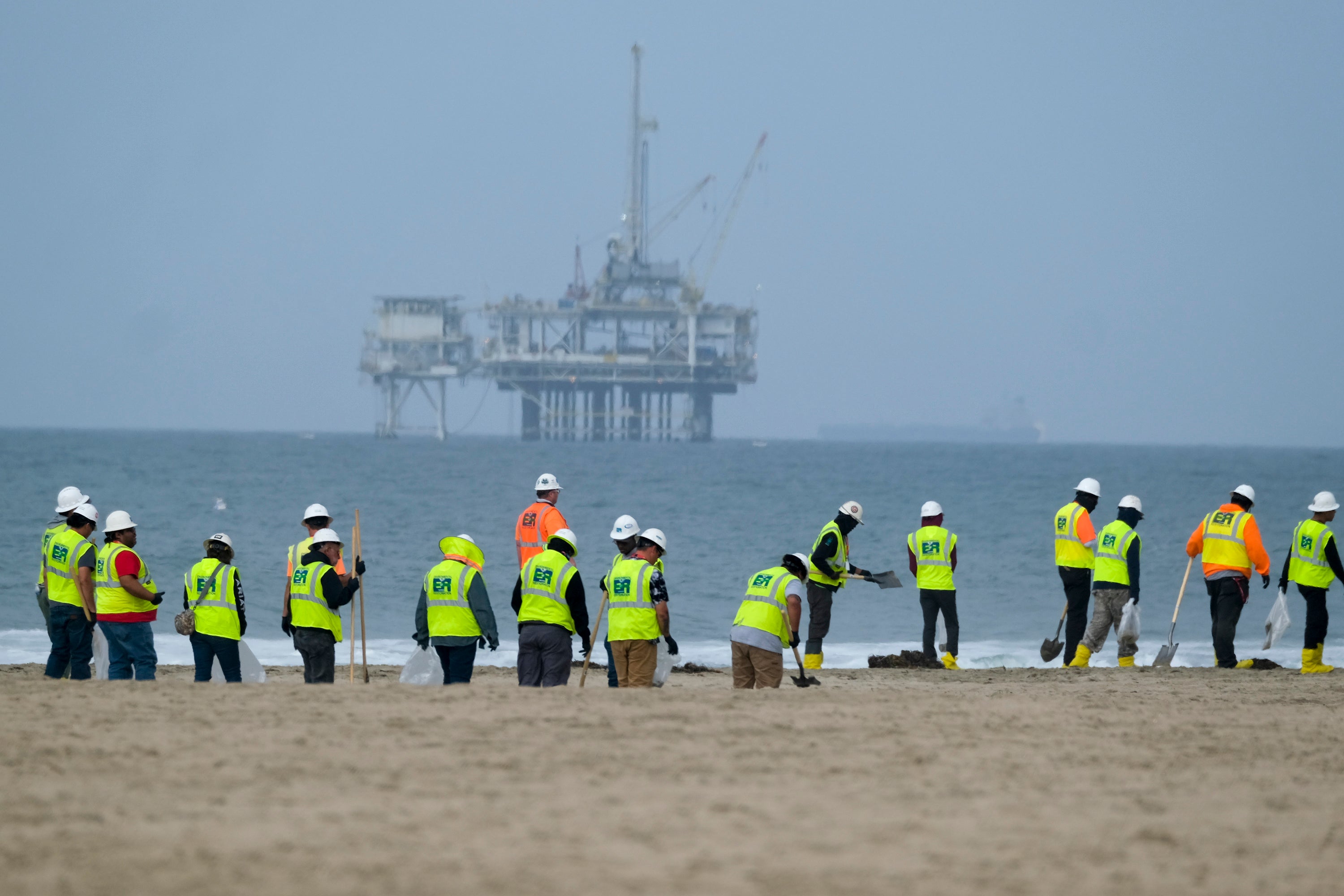After California oil spill, environmentalists plan to sue US
A month after a Southern California offshore oil spill, environmental advocates say they plan to sue the federal government over the failure to review and update plans for platforms off thecoast

Your support helps us to tell the story
From reproductive rights to climate change to Big Tech, The Independent is on the ground when the story is developing. Whether it's investigating the financials of Elon Musk's pro-Trump PAC or producing our latest documentary, 'The A Word', which shines a light on the American women fighting for reproductive rights, we know how important it is to parse out the facts from the messaging.
At such a critical moment in US history, we need reporters on the ground. Your donation allows us to keep sending journalists to speak to both sides of the story.
The Independent is trusted by Americans across the entire political spectrum. And unlike many other quality news outlets, we choose not to lock Americans out of our reporting and analysis with paywalls. We believe quality journalism should be available to everyone, paid for by those who can afford it.
Your support makes all the difference.A month after a Southern California offshore oil spill, environmental advocates said Tuesday that they plan to sue the federal government over the failure to review and update plans for platforms off the coast.
The Center for Biological Diversity said it sent notice to the Secretary of the Interior of its intent to sue, a requirement for lawsuits against the federal government.
The group contends the government approved plans for a cluster of oil platforms in the 1980s and that they are still running though they were expected to wind down production in 2007.
The notice came a month after a pipeline owned by Houston-based Amplify Energy leaked at least about 25,000 gallons (94,635 liters) of crude oil into the ocean off the coast of Orange County Blobs of oil washed ashore, oiling birds and shuttering the famed shoreline of Huntington Beach for a week.
Environmentalists braced for the worst but the damage has been less than initially feared. Much of the oil broke up at sea and local officials put up booms to keep the crude out of sensitive wetlands.
Under federal law, the government is required to review oil development and production plans for leases in federal waters and revise them as needed in response to changing conditions or activities, though that rarely happens, said Miyoko Sakashita, oceans director at the Center for Biological Diversity.
“It is not lawful for them to just continue on with these really old development and production plans,” Sakashita said.
She added: “It's particularly notable in this instance where we've now had this oil spill. The infrastructure is aging and things need to be done differently.”
John Romero, a spokesperson for the Interior Department's Bureau of Ocean Energy Management, does not comment on pending litigation.
The leaky pipeline near Huntington Beach ferried crude oil from the offshore platforms questioned by the Center for Biological Diversity to the coast.
The cause of the spill is under investigation, but federal officials have said the pipeline was likely initially damaged by a ship’s anchor.